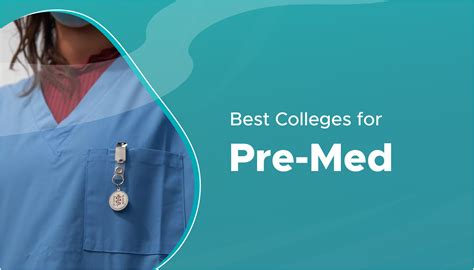Introduction

Aspiring medical practitioners face a rigorous and competitive journey in pursuing pre-medicine. With an abundance of options available, choosing the optimal path can be daunting. This comprehensive guide aims to empower prospective pre-med students with the knowledge and insights necessary to make informed decisions that align with their aspirations and qualifications.
Selecting the Right Pre-Med Track
Choosing a Major
Pre-med students typically choose a major that provides a strong foundation in the sciences, such as:
- Biology
- Chemistry
- Biochemistry
- Physics
- Mathematics
Factors to Consider
When selecting a major, consider the following factors:
- Personal Interests: Choose a field that aligns with your passions and strengths.
- Coursework: Ensure that the major covers the required pre-med courses, such as biology, chemistry, and physics.
- Faculty Mentorship: Look for a major with faculty members who can provide guidance and support throughout your pre-med journey.
- Career Options: Consider the potential career paths associated with your major beyond medical school.
Essential Pre-Med Courses
The Association of American Medical Colleges (AAMC) recommends the following pre-med course requirements:
| Course Category | Semester Hours |
|---|---|
| Biology | 8 |
| Chemistry (with lab) | 8 |
| Physics (with lab) | 8 |
| Mathematics (Calculus) | 4 |
| English (Writing and Literature) | 6 |
Beyond Coursework: Essential Pre-Med Experiences
Research Experience
- Engage in research projects under the supervision of a faculty mentor.
- Participate in summer research programs or internships.
- Present your research findings at conferences or in publications.
Clinical Experience
- Volunteer at hospitals or clinics.
- Shadow physicians in different medical specialties.
- Gain hands-on experience in patient care.
Leadership and Teamwork
- Participate in student organizations or clubs related to healthcare or medicine.
- Assume leadership roles in extracurricular activities.
- Develop strong teamwork and communication skills.
Shadowing Physicians
- Shadowing physicians in various medical specialties provides invaluable insights into the field.
- Observe medical procedures, patient interactions, and the daily life of a doctor.
- Seek out opportunities to ask questions and learn from experienced professionals.
The Medical College Application Process
Medical College Admission Test (MCAT)
- The MCAT is a standardized exam required for admission to medical school.
- Prepare thoroughly for the MCAT by taking practice exams and seeking professional guidance.
Admissions Factors
- Medical schools evaluate applications based on:
- GPA
- MCAT scores
- Research experience
- Clinical experience
- Personal statement
- Letters of recommendation
Motivations and Pain Points of Pre-Med Students
Motivations:
- Desire to help others
- Interest in science and medicine
- Passion for healthcare
Pain Points:
- Rigorous coursework
- Competitive admissions process
- High costs associated with pre-med and medical school
- Long hours and demanding schedule
Why Pre-Med Matters
Benefits of Pre-Med:
- Develops a strong foundation in science and medicine
- Provides hands-on experience in patient care
- Enhances critical thinking, problem-solving, and communication skills
- Prepares students for the challenges and rewards of medical school and beyond
Conclusion
Pursuing pre-med is a rewarding and challenging path that requires careful planning and dedication. By understanding the requirements, exploring different tracks, and gaining valuable experiences, prospective pre-med students can optimize their chances of success and embark on a fulfilling journey toward becoming a skilled and compassionate physician. Remember to consult with academic advisors, mentors, and healthcare professionals throughout your pre-med journey to ensure that you are on the right track to achieve your goals.
Additional Resources:
- Association of American Medical Colleges (AAMC)
- American Medical Association (AMA)
- Association of American Colleges of Osteopathic Medicine (AACOM)
